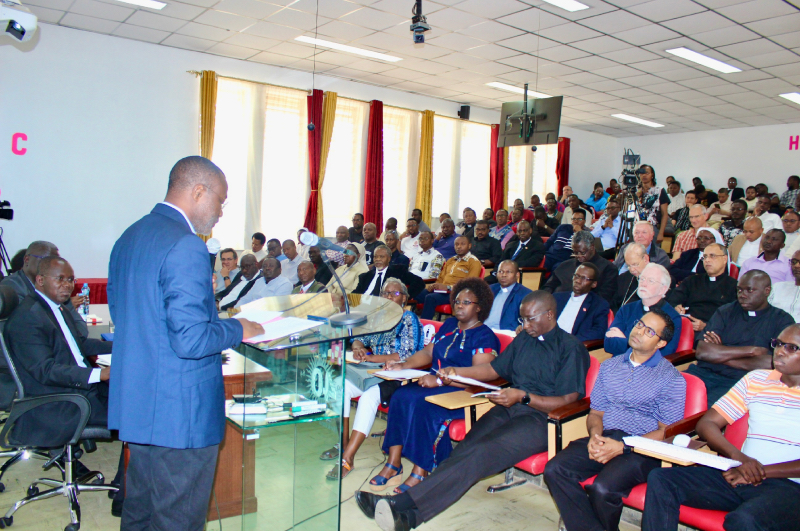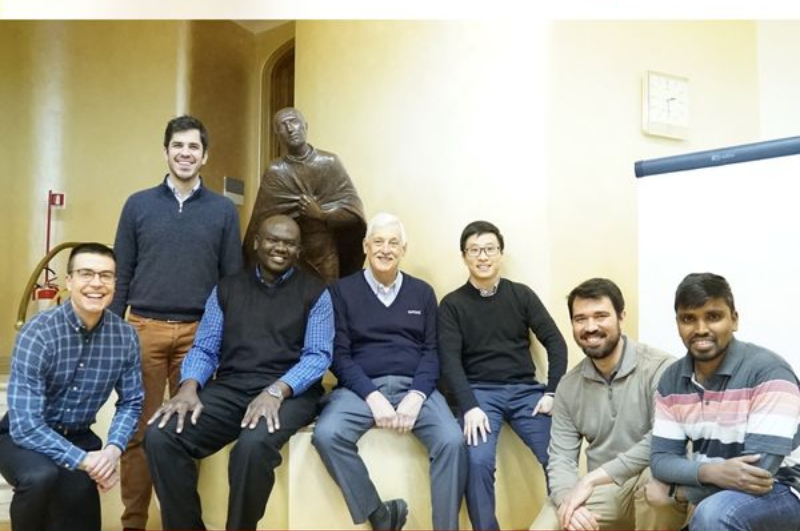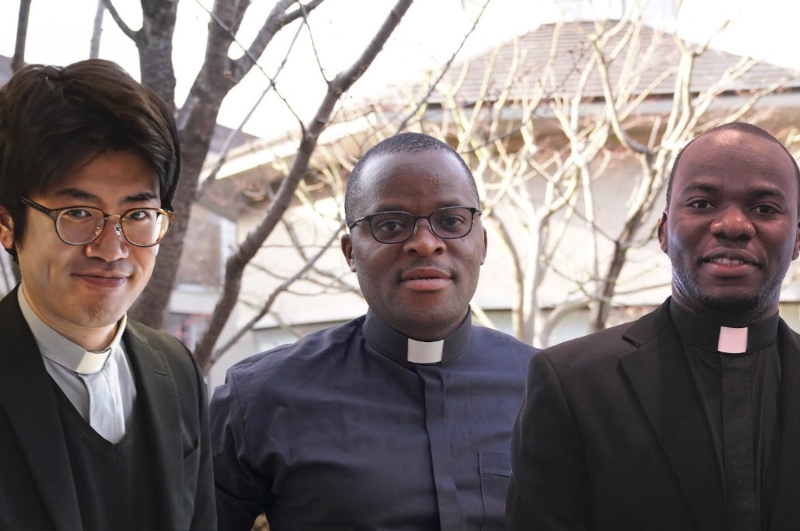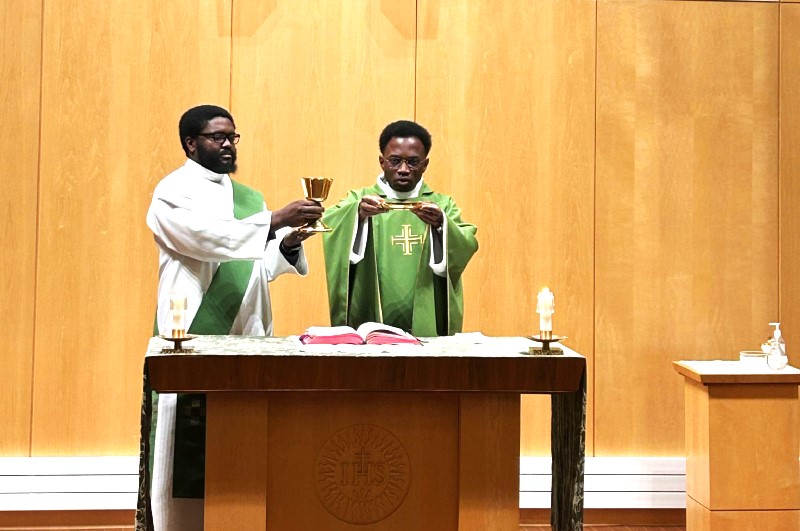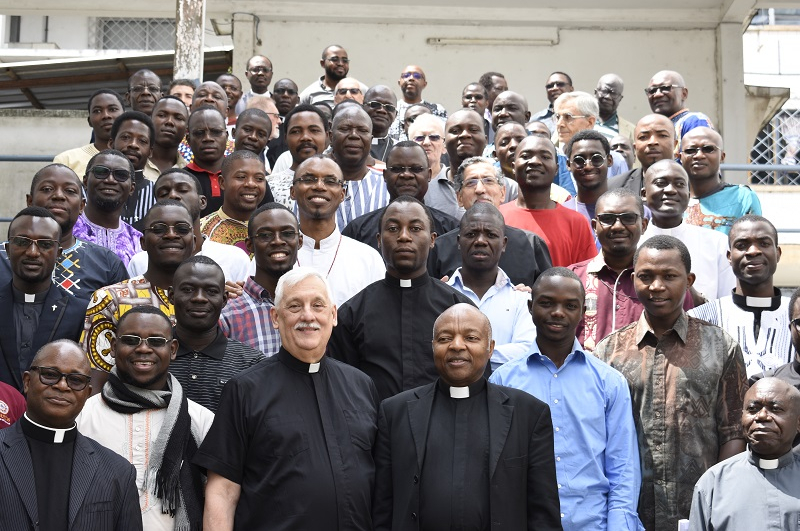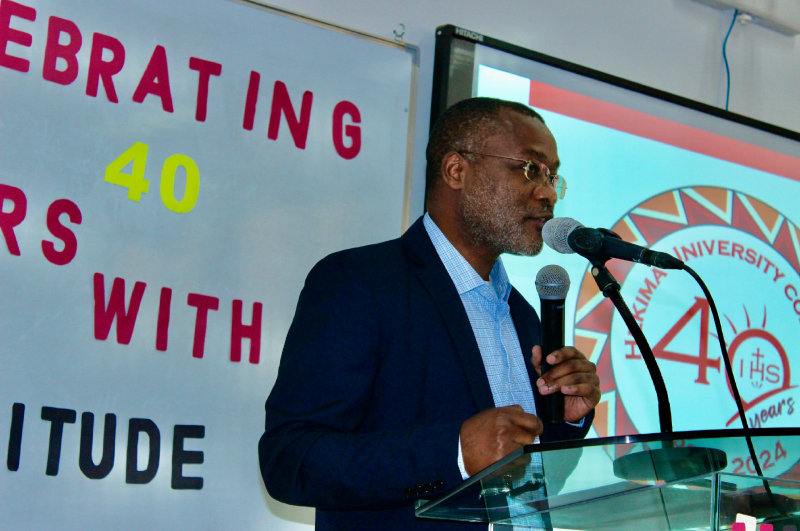

In a recent lecture at the inauguration of Hekima University College’s 40th Academic Year, Fr. Lado Ludovic, SJ pointed out that violence is one of the recurring problems of humanity, stretching back to the ‘time’ of Cain and Abel.
Further, he posed the question: are university programs in theology and peace studies a lasting solution to the epidemic of violence ravaging Africa and the world? To answer this, and taking into consideration the fact that violence is everywhere, within us, in families, communities, countries, and everywhere else in the world, Fr. Lado revisited a key story from the Old Testament, that of the liberation of the people of God from slavery in Egypt.
“If we stick to the religious memory of the people of Israel, which is also the foundation of the religious memory of Christians and Muslims alike, then the image of God that dominates in the Old Testament is that of a God who is not only the creator but also the liberator. YAWHEH is a God who cares about human misery and intervenes to free it,” Fr. Lado explained.
Fr. Lado argued that if theology is understood as a human discourse on a God who is concerned with the problems of humanity, it must therefore be a praxis for liberation. Quoting the encounter of Moses with God in the story of the burning bush (Ex.3:6-8), where God admits to seeing the misery of his people in Egypt, has heard their cry, knows their sufferings, and promises to deliver them, Fr. Lado noted that many Africans today, especially intellectuals, persist in thinking that Christianity is a religion of others, incapable of helping Africans experience a God who liberates.
This is because many of them from the 1990s dreamed of a democratic Africa evolving from the ashes of the dictatorships witnessed in the early years after independence, yet the majority of Africans continue to struggle with war, injustice, and irresponsible political regimes of all kinds.
“God did not intervene directly to liberate his people from Egypt; he used men and women like Moses, Miriam, and Joshua. As a theology institution, if we spend our whole lives speculating on the name of God without any opening toward liberation practice then our theology is dubious and I doubt that this kind of theology has a future in Africa,” Fr. Lado explained adding that the collaboration between Theos and Anthropos, between God and Humanity, is central to liberation praxis.
“From slavery through colonization to the current neo-colonization, the people of Africa have been waiting and searching for liberation. As theologians, or as peace students, what do we have to say to them? What are the traces and signs of God's intervention in our collective history as Africans that we can point at to convince our people that God is journeying with them?” Fr. Lado challenged.
According to Fr. Lado, having Theology and Peace Studies in the same institution, as is the case at Hekima University College, is not an unholy marriage because the two complement each other well. Just as Theology needs Peace Studies to open itself up to a praxis of liberation, Peace Studies need Theology to properly diagnose the deep source of the multifaceted violence that has been undermining humanity for ages.
“Peace Studies and International Relations cannot be reduced to a set of recipes and tools for reconciling people and communities in situations of war, violence, and conflicts because if it were that simple, there would be no more talk of war in Sudan, Ethiopia, Ukraine, Russia, eastern DRC, western Cameroon, Libya, and so on. Rather there is a need to get back to the fundamental question as to why men and women created in the image of God are violent,” he said.
This, Fr. Lado explained, is where theological concepts such as original sin and redemption, sin, and grace, make sense: “Human beings are violent because they are wounded deep within themselves and are in need of healing, of salvation, and violence is more of a cry of distress rather than a manifestation of wickedness.”
According to Fr. Lado, human violence which is rooted in an ontological wound in human beings, cannot be cured with a few conflict management recipes and toolkits acquired in peace studies programs. Therefore unless the human being is healed of his ontological wound, violence, wars, and conflicts will continue.
Making reference to the figure of Moses, whom he considers both a political and spiritual leadership figure, Fr. Lado emphasized the importance of the meeting tent in liberation praxis.
"Each leader, spiritual or political, must find his own Meeting Tent where immanence and transcendence are reconciled, where anthropology and theology converse for an inspired liberation praxis," he said.
Fr. Lado warned that a spirituality or a theology that does not lead to good politics or liberation praxis is disembodied; "Africa does not need that. Theologies that do not open us up to the problems of our time are dangerous for Africa and the world".
Finally, Fr. Lado observed two phenomena that must seriously be taken into consideration with regard to future theological discourse in Africa. The first one is that over the last 25 years, Pentecostalism has enjoyed dazzling success in Africa and now boasts not only a host of denominations but also schools of theology that produce pastors and theologians. He pointed out that Pentecostalism continues to bleed traditional churches, including the Catholic Church.
"The number of priests who identify as charismatic healers or exorcists has increased considerably in the Catholic Church, including in the Society of Jesus. Almost no parish priest today escapes the demand for prayers of deliverance and healing from the faithful, especially in an environment where fear and accusations of witchcraft are still rampant."
The second issue that must be considered with regard to future theological discourse in Africa is the fact that Christianity in Africa today is almost entirely in the hands of Africans. Unlike in the past, when white missionaries were accused of having imported Western theological discourse into Africa considered ill-suited to the realities and needs of Africa, everything is in the hands of Africans and they have no excuse.
“We have no one to blame if we don’t do the job; we have no one else to blame if we don’t produce an African Theology that speaks to our reality.”
Finally, when all is said and done, Fr. Lado sees a School of Theology like Hekima University College not just limiting itself to being “a factory of priests or mass celebrants. I would expect Hekima University College to produce in the next decade a few more Moses figures to challenge the Pharaoh of our times and a few more Jesus figures to confront the Herods and Pilates of our times!”.
Rev. Dr. Fr. Lado Ludovic, SJ, the director of Centre d’Etude et de Formation pour le Développement (CEFOD) in N’Djamena, Chad is a proud alumnus of Hekima University College. The Cameroonian who specializes in the anthropology of religion with a special focus on current trends in African Catholicism studied theology at Hekima University College from 1998 to 2001. He holds a D.Phil in social and cultural anthropology from the University of Oxford. Among his publications are Catholic Pentecostalism and The Paradoxes of Africanization (2009); Le pluralisme religieux en Afrique (2013); and several journal articles.
Related Articles
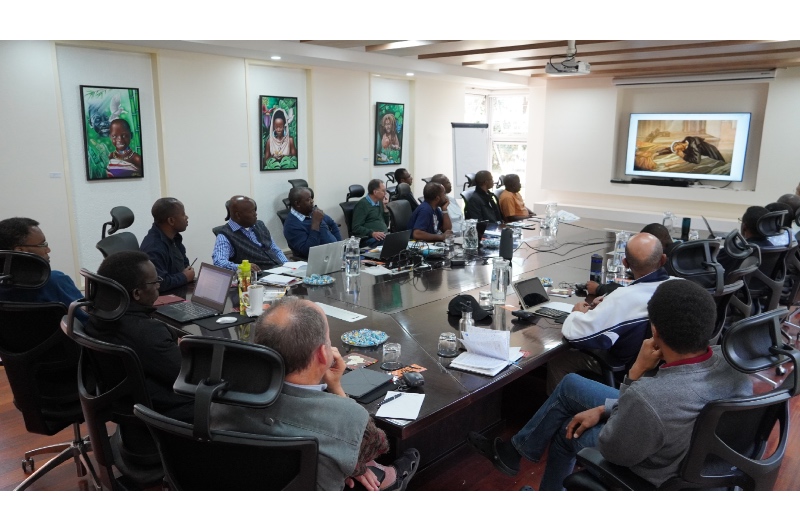
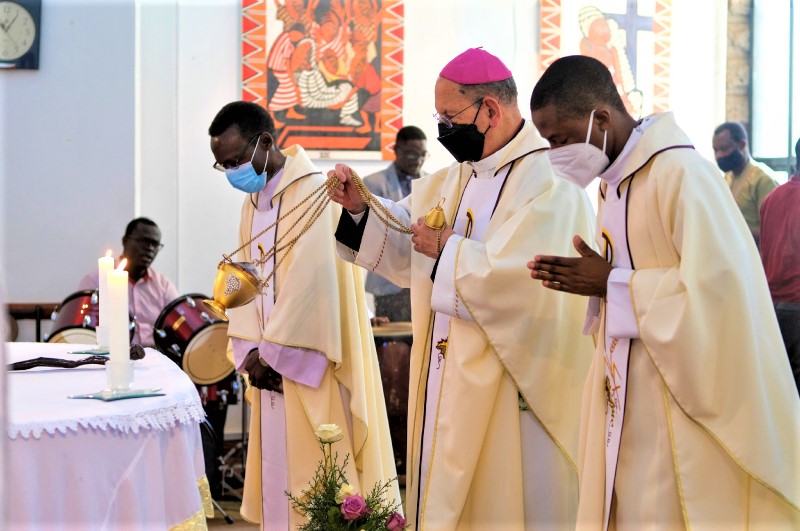

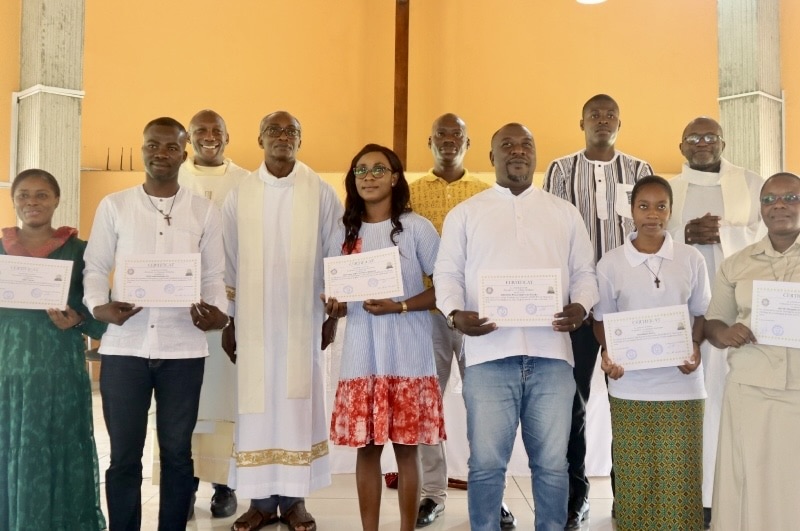
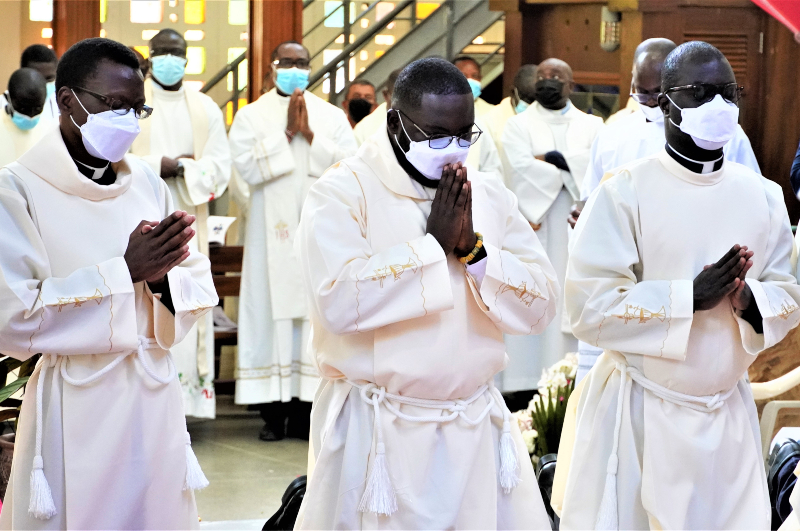
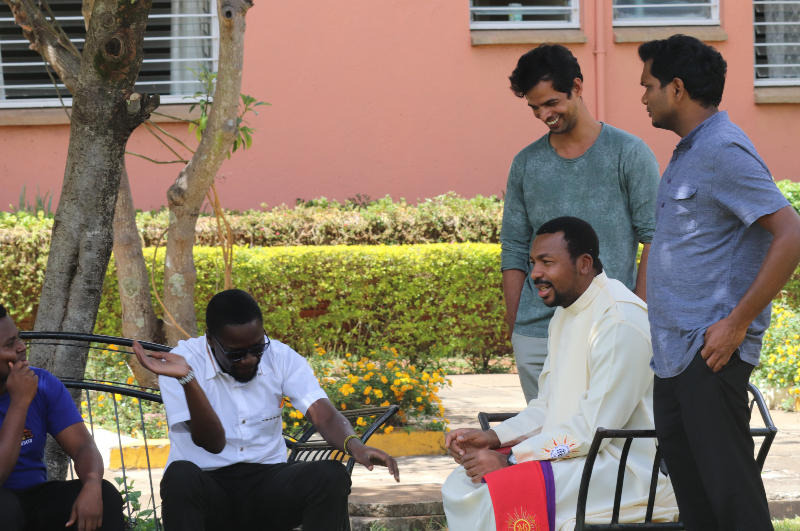
Select Payment Method
Pay by bank transfer
If you wish to make a donation by direct bank transfer please contact Fr Paul Hamill SJ treasurer@jesuits.africa. Fr Paul will get in touch with you about the best method of transfer for you and share account details with you. Donations can be one-off gifts or of any frequency; for example, you might wish to become a regular monthly donor of small amounts; that sort of reliable income can allow for very welcome forward planning in the development of the Society’s works in Africa and Madagascar.
Often it is easier to send a donation to an office within your own country and Fr Paul can advise on how that might be done. In some countries this kind of giving can also be recognised for tax relief and the necessary receipts will be issued.


